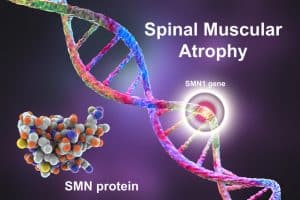NICE refuses cancer drugs Arzerra, Torisel and Levact
pharmafile | October 27, 2010 | News story | Sales and Marketing | Arzerra, GSK, NICE, Napp Pharmaceuticals, Pfizer, Torisel, Treanda, cancer drugs
NICE has refused to recommend a trio of cancer drugs for NHS use – but in two cases says this is down to a lack of evidence from their manufacturers.
The clinical effectiveness watchdog, which the government has said will in effect be muzzled in future, has rejected GlaxoSmithKline’s Arzerra, Pfizer’s Torisel and Napp Pharmaceuticals’ Levact.
Arzerra (ofatumumab) is refused the green light as a treatment for chronic lymphocytic leukaemia that does not respond to fludarabine and alemtuzumab on financial grounds.
GSK says it costs £182 per 100 mg vial, excluding VAT, and did agree a patient access scheme to discount the price to the NHS. Even so, NICE judged it too costly for an “uncertain benefit”.
Patients who are refractory to fludarabine and alemtuzumab have only a median survival of eight months: in its draft guidance last month, NICE calculated Arzerra treatment would cost on average £18,449 – nearly four times as much as ‘best supportive care’ at £4,885.
It is a blow for Arzerra, which was only launched in the UK in May this year after winning a conditional marketing authorisation from the EMA that required GSK to provide further data.
But when it comes to Torisel (temsirolimus) and Levact (bendamustine), both used to treat non-Hodgkins lymphoma, chief executive Sir Andrew Dillon says NICE’s hands were tied.
“We are disappointed to have to terminate the two appraisals involving temsirolimus and bendamustine but NICE is left with little choice if manufacturers choose not to submit any evidence,” he said.
Torisel was being appraised for patients with mantle cell lymphoma, a rare type of non-Hodgkins lymphoma, treatment of which requires complex clinical management and a “large number of comparator regimens used in the single randomised clinical trial”.
In its guidance, NICE says that this meant Pfizer “did not believe that an adequate assessment of the clinical and cost effectiveness of temsirolimus would be possible”.
Levact was being assessed in low grade non-Hodgkins lymphoma that is refractory to rituximab or a rituximab-containing regimen.
But NICE reports that Napp said it was “unable to identify relevant sources of clinical evidence suitable for a NICE appraisal in people with rituximab refractory disease”.
Further research is ongoing, the manufacturer added, but data would not be available to allow NICE to produce timely guidance.
NHS organisations should take into account the reasons why no evidence was submitted for either drug, NICE suggests.
Adam Hill
Related Content

Digital mental health technologies – a valuable tool in supporting people with depression and anxiety
The potential benefits of digital mental health technology for managing depression, anxiety and stress, together …

GSK’s Exdensur receives MHRA approval for asthma and rhinosinusitis
GSK’s Exdensur (depemokimab), a twice-yearly biological medicine, has received approval from the UK Medicines and …

Combination treatments: Takeda’s Implementation Framework and the broader landscape
Pharmafile talks to Emma Roffe, Oncology Country Head (UK & Ireland) about the combination treatment …






